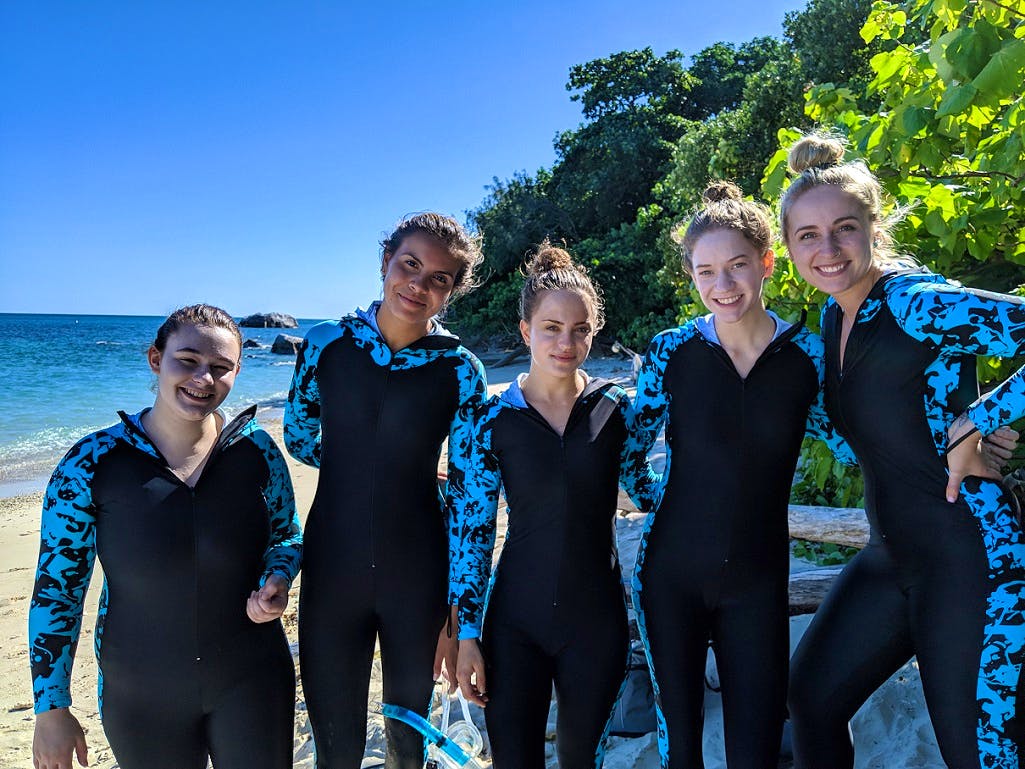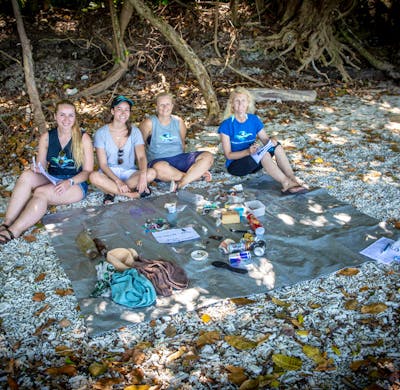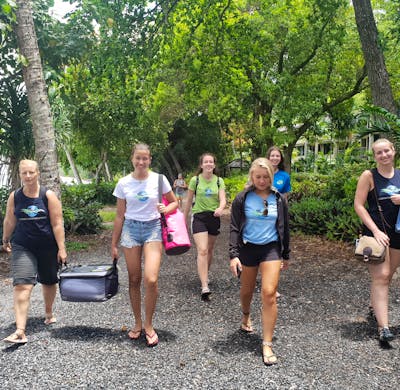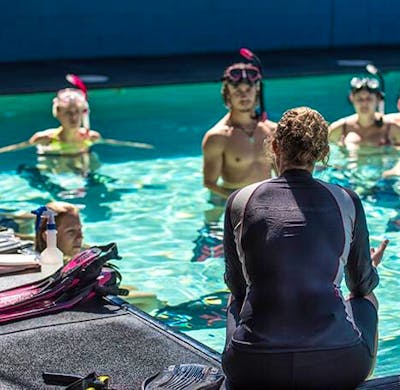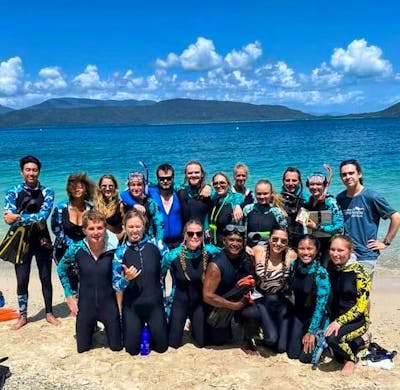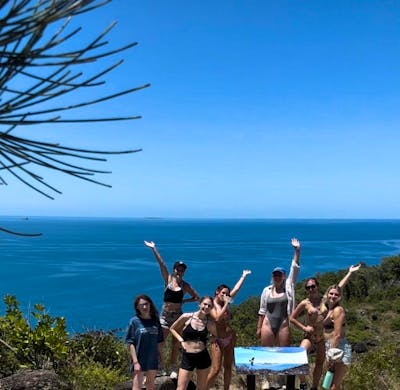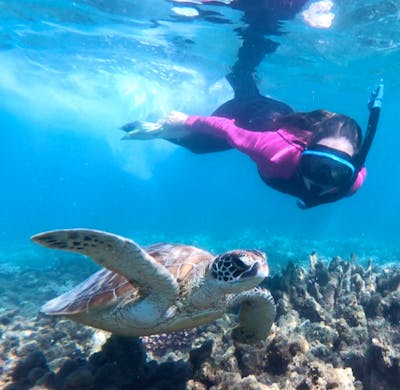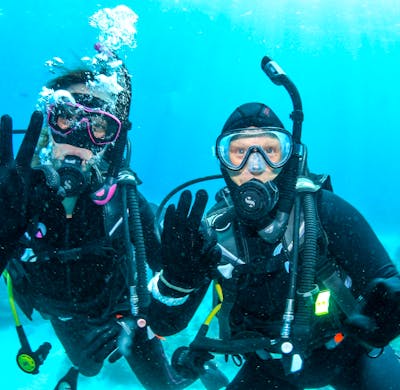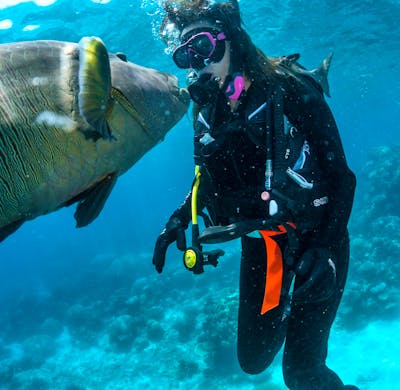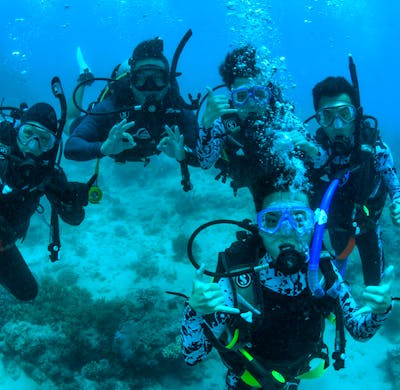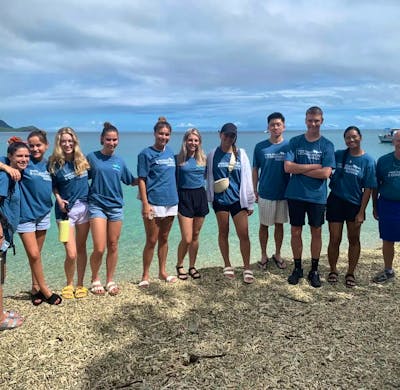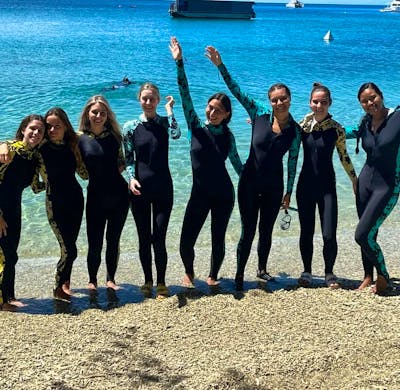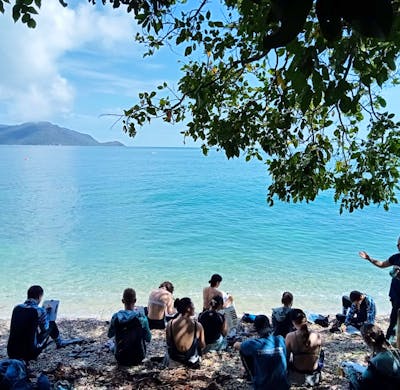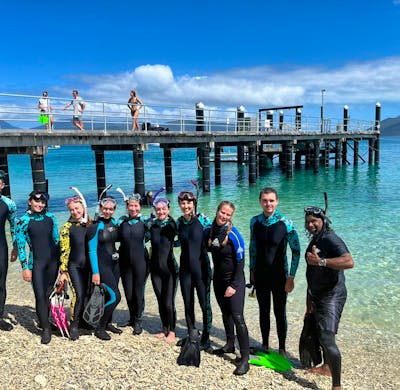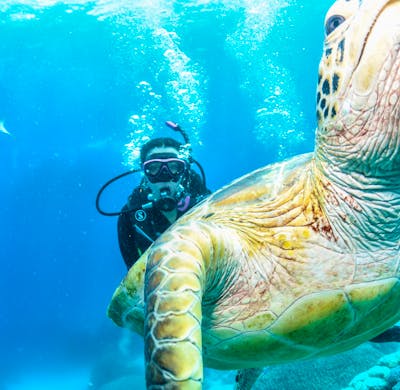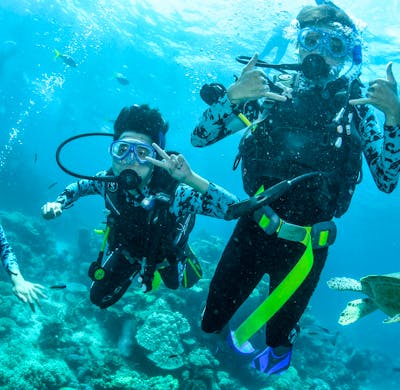a partir de 3.087€
Great Barrier Reef Marine Conservation plus SCUBA
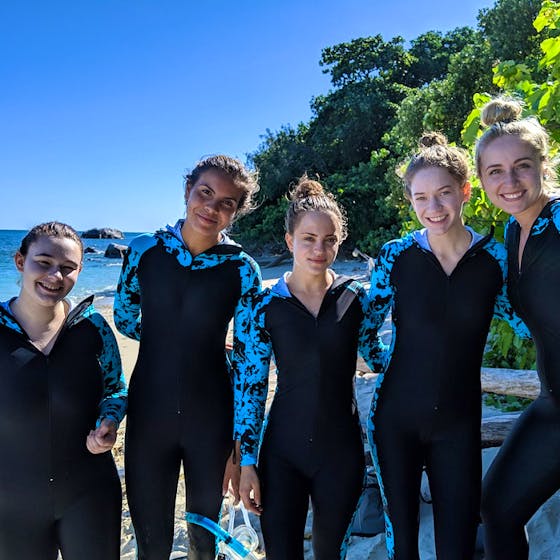
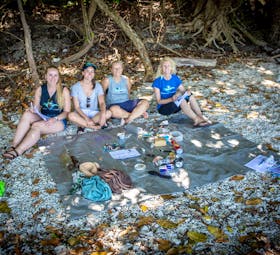
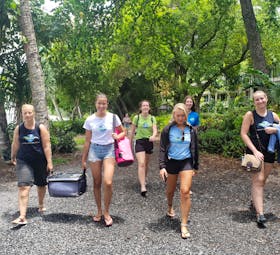
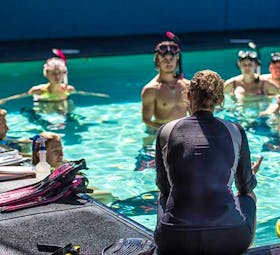
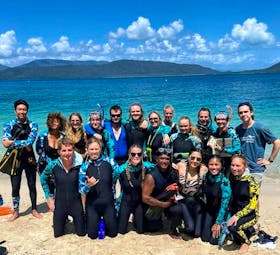
Destaques
- Become a trained volunteer marine biologist, surveying and reporting on the health of the Great Barrier Reef through thrilling diving and snorkeling adventures on tropical islands
- Dive into the incredible underwater world and swim alongside a diverse range of sea life, including fascinating turtles and majestic sharks
- Take part in marine debris clean-up activities, actively reducing the threats posed to marine life and making a direct positive impact
- Enhance your diving skills by learning in one of the world's most amazing locations or advancing your certification with an Advanced or Rescue Diver course
- Connect with like-minded individuals from around the world, sharing your passion for marine conservation and creating lasting friendships
Especialmente adequado para
Sobre o programa
Learn to dive while helping protect and conserve the world’s biggest coral reef. 🪸
The Project
What an amazing experience! Learn to Dive in Australia's Great Barrier Reef while combining this with some incredible marine conservation activities and you will feel great for contributing to the world’s largest reef.
Oceans 2 Earth Volunteers has joined prominent scuba diving and ...
Dia típico
After completing the ‘Liveaboard’ dive course (Open Water, Advanced Open Water or Rescue Diver Course), volunteers use their skills as snorkelers to conduct a variety of marine conservation activities.
For 2 days volunteers are transported to a tropical island where they spend the morning ...
Actividades em tempo livre
There is plenty to do in this vibrant part of Australia so take some time out before or after your placement to explore some of the surrounding areas.
Cairns and the surrounding areas have it - dive sites, Fitzroy Island National Park, off road driving, ballooning, canoeing, cruising, scuba-diving, ...
Requisitos
Serviços incluídos
O que NÃO está incluído?
Detalhes à chegada
Please Note:
Pricing changes depending upon which dive course volunteers undertake.
$3070 Marine Conservation with Open Water Dive Certificate
$2970 Marine Conservation with Advanced Water Dive Certificate
$3120 Marine Conservation with Rescue Dive Certificate
$2460 For Certified divers, Marine Conservation with 2 night liveaboard
$1500 Extra week of marine conservation volunteering
The programs run most months of every year. Please contact us for start dates further out than these.
Start dates for the full non-certified Open Water Dive Certificate:
1/01/24 to 13/01/24 (stay 1-3 extra weeks)
28/01/24 to 10/02/24 (stay 1-3 extra weeks)
25/02/24 to 9/03/24 (stay 1-3 extra weeks)
28/04/24 to 11/05/24 (stay 1-3 extra weeks)
26/05/24 to 8/06/24 (stay 1-3 extra weeks)
23/06/24 to 6/07/24 (stay 1-3 extra weeks)
25/08/24 to 7/09/24 (stay 1-3 extra weeks)
29/09/24 to 12/10/24 (stay 1-3 extra weeks)
27/10/24 to 9/11/24 (stay 1-3 extra weeks)
24/11/24 to 7/12/24 (stay 1-3 extra weeks)
2025 Dates
5/1/25 to 18/01/25 (stay 1-3 extra weeks)
Start dates for the Advanced Open Water Dive Certificate:
2/01/24 to 13/01/24 (stay 1-3 extra weeks)
30/01/24 to 10/02/24 (stay 1-3 extra weeks)
27/02/24 to 9/03/24 (stay 1-3 extra weeks)
30/04/24 to 11/05/24 (stay 1-3 extra weeks)
28/05/24 to 8/06/24 (stay 1-3 extra weeks)
28/06/24 to 6/07/24 (stay 1-3 extra weeks)
27/08/24 to 7/09/24 (stay 1-3 extra weeks)
1/10/24 to 12/10/24 (stay 1-3 extra weeks)
29/10/24 to 9/11/24 (stay 1-3 extra weeks)
26/11/24 to 7/12/24 (stay 1-3 extra weeks)
2025 Dates
7/01/25 to 18/01/25 (stay 1-3 extra weeks)
Start dates for the Rescue Diver Certificate:
7/1/24 to 13/01/24 (stay 1-3 extra weeks)
4/2/24 to 10/02/24 (stay 1-3 extra weeks)
3/3/24 to 9/03/24 (stay 1-3 extra weeks)
5/5/24 to 11/05/24 (stay 1-3 extra weeks)
2/6/24 to 8/06/24 (stay 1-3 extra weeks)
30/6/24 to 6/07/24 (stay 1-3 extra weeks)
1/9/24 to 7/09/24 (stay 1-3 extra weeks)
6/10/24 to 12/10/24 (stay 1-3 extra weeks)
3/11/24 to 9/11/24 (stay 1-3 extra weeks)
1/12/24 to 7/12/24 (stay 1-3 extra weeks)
2025 Dates:
12/1/25 to 18/01/25 (stay 1-3 extra weeks)
Start dates for the Certified Diver liveaboard:
2/01/24 to 13/01/24 (stay 1-3 extra weeks)
30/01/24 to 10/02/24 (stay 1-3 extra weeks)
27/02/24 to 9/03/24 (stay 1-3 extra weeks)
30/04/24 to 11/05/24 (stay 1-3 extra weeks)
28/05/24 to 8/06/24 (stay 1-3 extra weeks)
28/06/24 to 6/07/24 (stay 1-3 extra weeks)
27/08/24 to 7/09/24 (stay 1-3 extra weeks)
1/10/24 to 12/10/24 (stay 1-3 extra weeks)
29/10/24 to 9/11/24 (stay 1-3 extra weeks)
26/11/24 to 7/12/24 (stay 1-3 extra weeks)
2025 Dates
7/01/25 to 18/01/25 (stay 1-3 extra weeks)
There will be some free days throughout the program to give the volunteers time to rest after activities.
Preços do programa
Conheça seu anfitrião
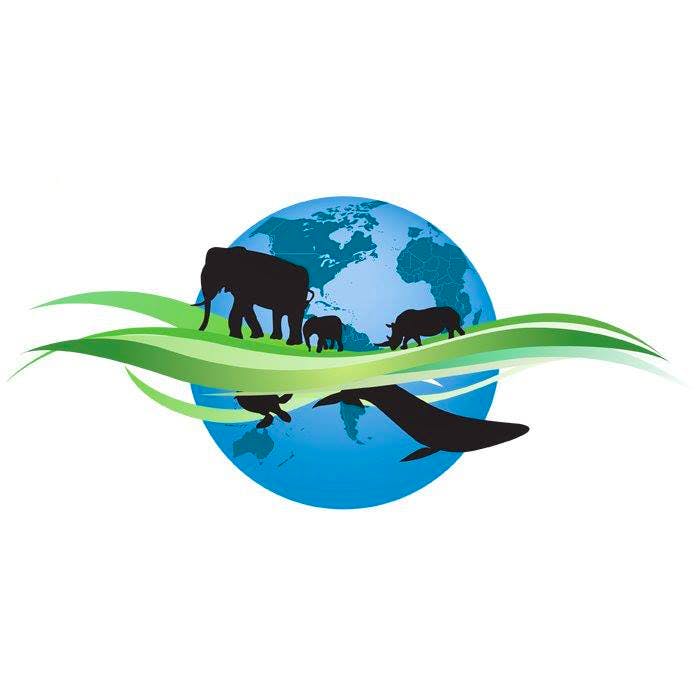
Oceans 2 Earth Volunteers
Non-profit - fundada em 2011
Verificado por Volunteer World
Hospedado por
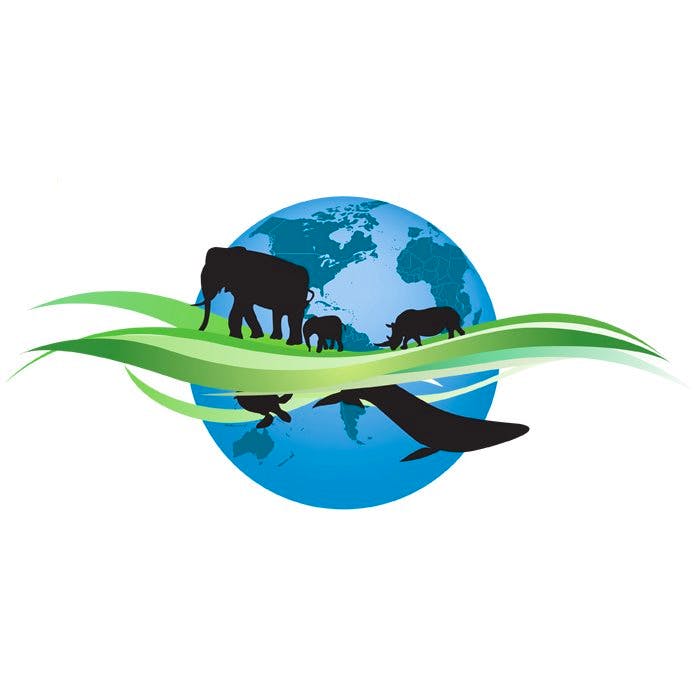
Tracy
Sobre o projecto
210 revisões ·  4.9
4.9
Localização

Pode também estar interessado em
-
Cairns
Recife de Coral
Mergulho
Grande Barreira de Corais
Queensland
Conservação da Tartaruga Marinha
Maiores de 50
Mergulhador na Austrália
Projectos no estrangeiro
Casais
Viagens Solidárias
de 18 Anos
Grupo
